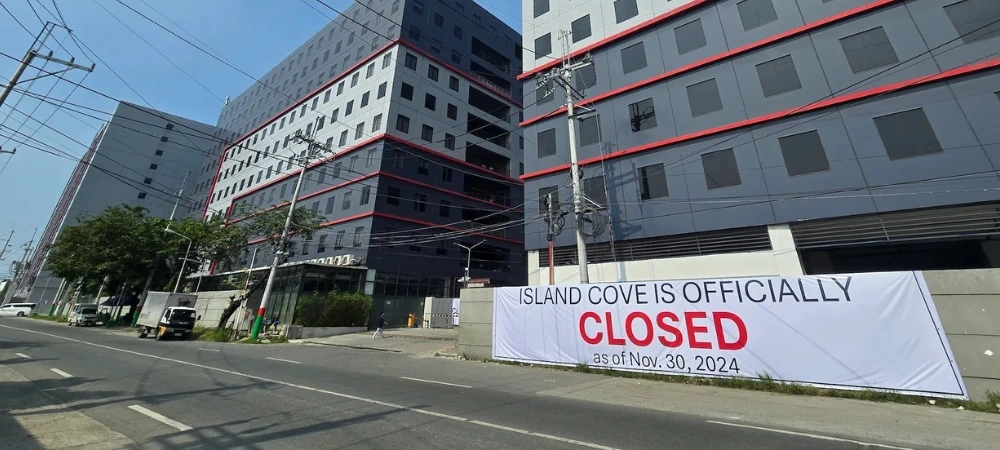With fewer than two weeks before the total ban on Philippine Offshore Gaming Operator (POGO) activities takes effect, authorities officially shut down the Philippines’ largest POGO hub—located at the former Island Cove resort in Kawit, Cavite—on Tuesday.
Philippine Amusement and Gaming Corporation (PAGCOR) Chairperson Alejandro Tengco confirmed to local media that all licensed POGO facilities across the country have now ceased operations. Although the ban will likely cause a projected government revenue loss of PHP 20 billion (USD 339 million), Tengco remained optimistic. He noted that new gaming licenses under legitimate frameworks could eventually offset the shortfall.
Interior Secretary Jonvic Remulla, Presidential Anti-Organized Crime Commission (PAOCC) Executive Director Undersecretary Gilbert Cruz, PAGCOR Chairperson Tengco, and Philippine National Police (PNP) Chief General Rommel Francisco Marbil attended the closure ceremony. Their presence underscored the administration’s commitment to completely phasing out POGOs.
The massive POGO hub in Cavite spanned 33 hectares, making it the largest of its kind in the country. The complex employed around 30,000 workers—half of them Filipinos—and featured 57 buildings. These included employee dormitories, gaming facilities, restaurants, grocery stores, clinics, salons, cafés, and spas. For years, the site served as a central base for offshore gaming operations in the Philippines.
Crackdown on Illegal POGOs Intensifies
Despite successfully shutting down licensed POGO firms, authorities now face the lingering threat of illegal POGO hubs. Undersecretary Cruz revealed that approximately 100 unauthorized or “guerrilla” POGO sites continue operating throughout the country. Local governments and the PNP have ramped up joint efforts to locate and dismantle these unlicensed hubs.
Moreover, Cruz explained that suspicious signs—such as 24/7 lighting, foreign occupants, frequent food deliveries, and excessive internet usage—often point to covert POGO activities. These indicators now serve as focal points for police surveillance and investigation.
To prevent misuse of commercial infrastructure, PAGCOR and the PNP also plan to inspect special-class Business Process Outsourcing (BPO) facilities. The goal is to ensure these offices do not double as illegal gambling fronts.
PNP Chief Marbil stressed that authorities have strengthened operations against illegal POGOs. Task Force Skimmer, which includes the PNP Anti-Cybercrime Group, continues to monitor suspicious activity. They are actively tracking foreign nationals linked to the operations and measuring the extent of illegal activities. According to Marbil, this ongoing crackdown forms part of a broader national effort to eliminate unauthorized gambling networks once and for all.












